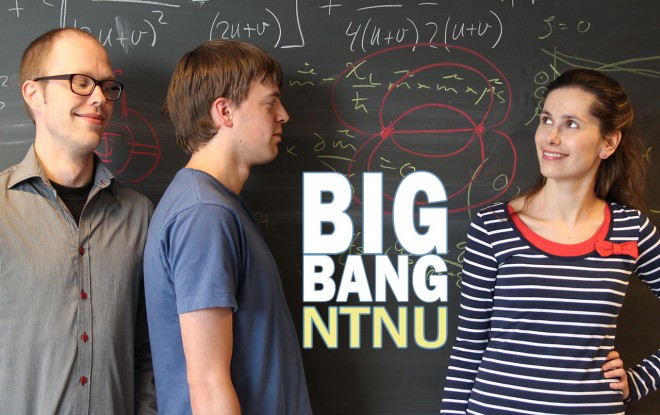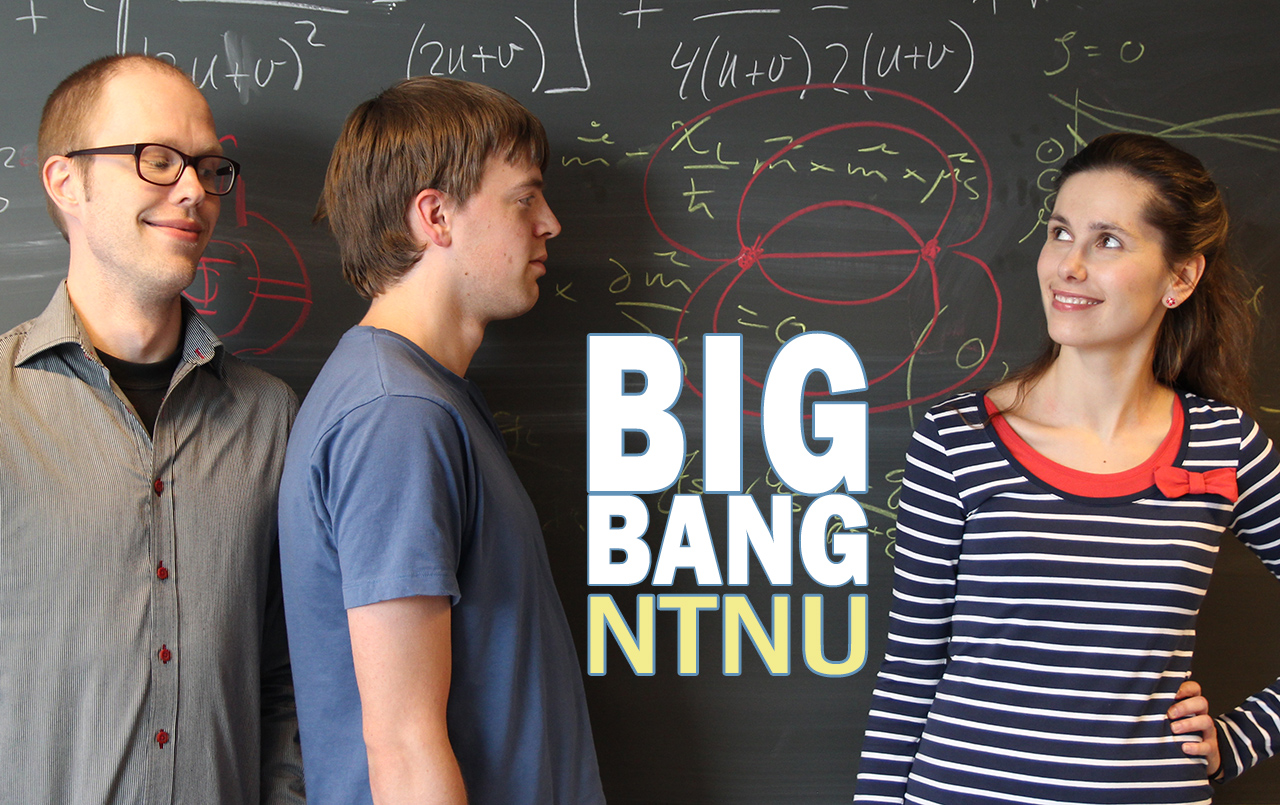Thanks to the unstoppable Sheldon Cooper and the rest of the crew in the popular sitcom “The Big Bang Theory”, the world has been granted a peek at what life is like for young physicists – both on and off campus. Solving complicated equations day and night, with several whiteboards always at hand in their apartment, spending their sparetime watching Firefly with extra commentaries, and pulling all-nighters battling orcs in World of Warcraft – yes, the Big Bang Theory physicists fully embrace the nerd within. But how accurate is the presented picture when comparing to everyday life for a physicist at, say, NTNU?
Not far from the truth
I suppose the answer will depend on who you ask, but surprisingly much is true! Now, not all theoretical physicists have a special shelf-spot for a limited edition Batman belt-buckle, but I think it is fair to say that the majority of us do embrace the nerd within when it comes to our passion for physics. A theoretical physicist is a curious being – he or she is driven by a desire to explore, understand and explain the unknown. Imagine that you are able to discover an equation which describes a physical phenomenon and that you are the first one to ever write down this equation. This is what theoretical physicists do! They unlock the secrets of nature and expose them both in terms of a mathematical language and in terms of how to interpret the equations physically.
Social skills needed
Some people may think that physicists are asocial, awkward beings incapable of interacting socially with much success. This is very far from the truth. Being a physicist often entails very much interactions with other researchers, especially from other parts of the world. This task comes with responsibility: it is important to grasp at least the basic elements of the culture of the researcher you are communicating with in order to treat them with respect and understanding. I have collaborators both in the United States and in Japan, and I can assure you that these cultures are very different. In turn, this influences the way that I communicate and express myself with my collaborators. Being a theoretical physicist allows you to get to know completely different parts of the world and learn about what these cultures value and cherish – interestingly, you also get to know yourself better in this process.
Curious about how the world works
The life of a theoretical physicist is very exciting. You find yourself day after day at the frontier of what we know about nature and how it works, and you are a part of pushing that frontier further ahead with your contribution. If you are a curious human being who enjoys math and wants to understand how the world works, I can warmly recommend exploring the path of theoretical physics – whether you own the complete set of Star Trek DVD’s or not.
More information about Theoretical Physics at NTNU

